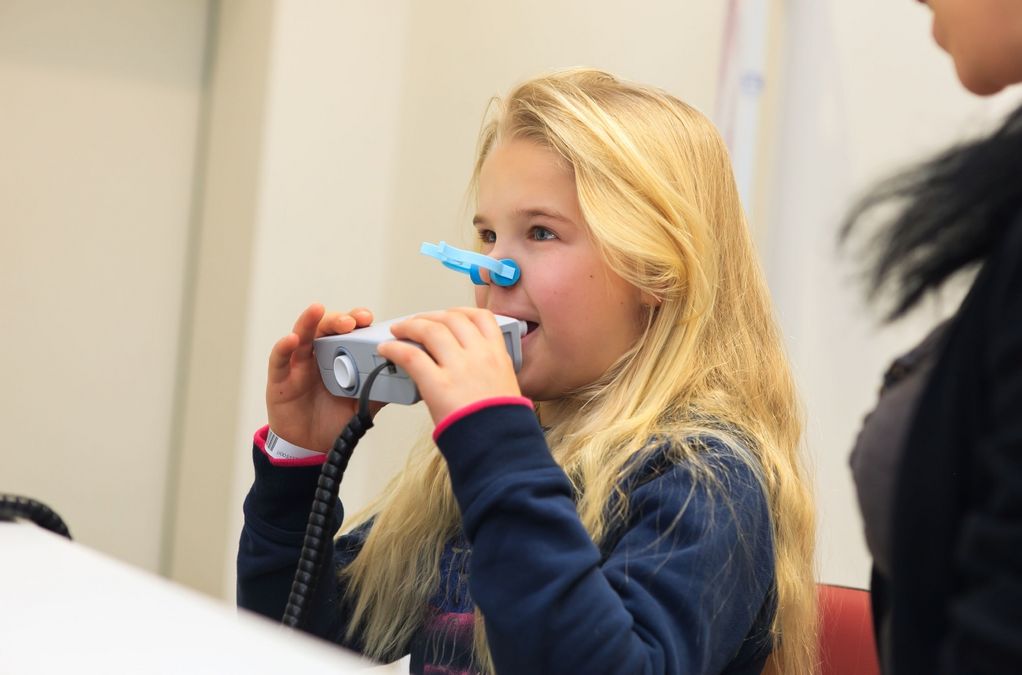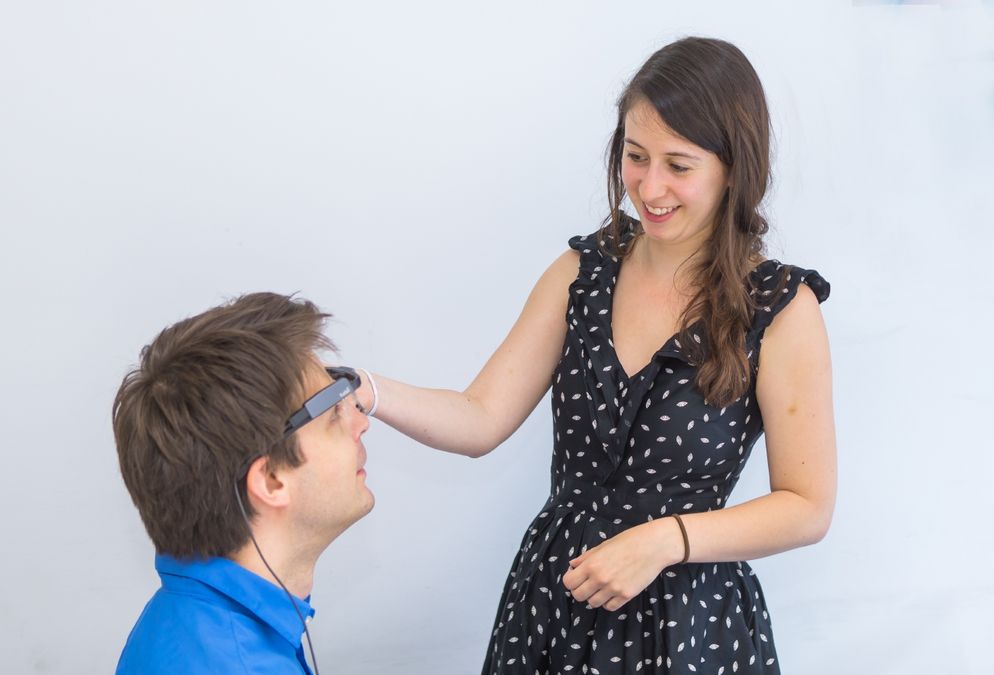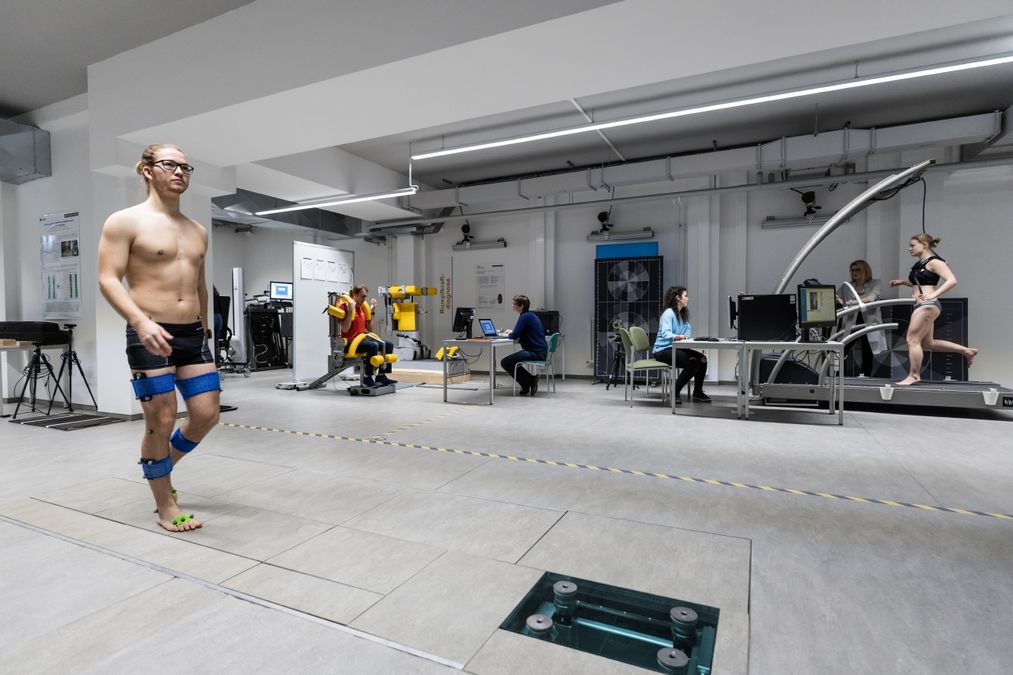Leipzig University set up its Ethics Advisory Board to meet its responsibility for the consequences of academic research and findings. The Ethics Advisory Board can advise you as an academic on ethical aspects of your research projects.
Assessment Procedure at Leipzig University
Leipzig University faces up to challenges in academia and society and its responsibility for the consequences of research findings, especially for humankind and the natural world. In order to meet this responsibility, Leipzig University has set up an Ethics Advisory Board, which reports to the Rectorate and is part of the Research Commission. The statutes of the Ethics Advisory Board at Leipzig University define the Ethics Advisory Board and regulate its tasks and procedures. The following principles apply:
- The Ethics Advisory Board advises members of the Leipzig University community.
- Applications are voluntary. Applications are often prompted by the requirements of external funding bodies, which make an opinion by the Ethics Advisory Board a prerequisite for financial support. In such cases, but also in others, the Ethics Advisory Board at Leipzig University provides assistance to the responsible academics by offering advice and assessing ethical aspects of their research. This does not affect the academics’ own responsibility for their actions.
- The Ethics Advisory Board works on the basis of applicable laws and academic standards. Accordingly, national and international recommendations, and declarations of professional societies in the relevant fields and the German Research Foundation (DFG) are taken into account on the basis of the current state of science and technology.
- The Ethics Advisory Board can only issue an opinion if the research project has not yet begun.
- If you will be working with personal data in your research project, please contact the Data Protection Officer before submitting your application. This is essential in order to evaluate a research project and for the Ethics Advisory Board to issue an opinion. All documents of relevance for data protection matters – revised after consultation, if necessary – must be complete when the application is submitted. Multiple consultations are also possible. Applicants should contact the Data Protection Officer three to four weeks prior to the Ethics Advisory Board submission deadline.
-
The Ethics Advisory Board does not conduct a legal review of the project.
- Applications for review for projects within the scope of theses (up to Master's degree) must always be submitted together with the supervisor (or Pl of the project).
The Ethics Advisory Board assesses ethical aspects of research projects involving human subjects that do not fall within the remit of the Ethics Committee at Leipzig University’s Faculty of Medicine. The research projects are usually externally funded research projects, commissioned research and development, and theses.
1. In what form can applications be submitted?
The application can be submitted in paper form or by email. If you are submitting the application electronically, please combine all the necessary as an attachment in a PDF document with a maximum size of 30 MB. If you are submitting documents that you cannot send as a PDF, please attach them separately in electronic form or send them to our office marked with the applicant’s name. Application documents will not be returned. A copy will remain on file for ten years. Copies made for the purpose of the assessment will be destroyed once the assessment is complete.
Application documents may be submitted in English. However, all documents relating to data protection should be presented in German.
2. What should the application contain?
An application for evaluation of a project by the Ethics Advisory Board at Leipzig University should contain
- The completed application form
- A short project summary (no more than two to three pages) and
- A detailed description of the ethically relevant aspects of the project.
An application for evaluation of a project by the Ethics Advisory Board at Leipzig University can contain
- A records of processing activities pursuant to Article 30 of the General Data Protection Regulation, if the project will involve the processing of personal data.
The Leipzig University Data Protection Officer is responsible for assessing applications received by the Ethics Advisory Board from a data protection perspective. This is essential in order to evaluate a research project and for the Ethics Advisory Board to issue an opinion. Whether the completion of the register of processing activities is necessary should be coordinated with the data protection officer. The directory of processing activities (if necessary) must first be created digitally in the data protection management system (DPM). Contact the data protection officer in this regard. You can then generate a PDF and attach it to the application. All documents of relevance for data protection matters – revised after consultation, if necessary – must be complete when the application is submitted. Multiple consultations are also possible.
Please contact the Data Protection Officer three to four weeks prior to the Ethics Advisory Board submission deadline.
The guide contains a detailed catalogue of questions that provides orientation as to which ethical implications of the research project need to be addressed. The nature of the application must be oriented towards the research project in question. Name the strategy to address ethical implications, from participant preparation and recruitment to data analysis, storage, and presentation.
3. What other application documents are required?
The Ethics Advisory Board reserves the right to ask specific questions of the applicant during the consultation and decision-making process. Upon request, further documents may need to be submitted (e.g. written statements by third parties on the project, or questionnaires). In particular, all declarations of consent and information texts for the research subjects and, if applicable, their legal representatives must be submitted to the Ethics Advisory Board. In addition, a statement must be enclosed explaining whether applications with the same or similar content have already been submitted previously or simultaneously – and, if so, where and with what result.
4. In what form will the opinion be issued and how long will it take?
After carefully reviewing the documents submitted, the Ethics Advisory Board will examine in particular whether
- all precautions have been taken to minimise the risk to subjects,
- there is an appropriate balance between the benefits and risks of the project,
- the consent of the subjects or their legal representatives has been obtained,
- there are any data protection aspects to consider when conducting the project and the Data Protection Officer needs to be involved
and, if necessary, issue an opinion on ethical aspects of planned research projects.
The Ethics Advisory Board normally issues an opinion eight weeks after receiving the complete application. If the Ethics Advisory Board receives an exceptionally high number of applications or there are other special circumstances, please note that it may take longer to process individual applications. If appropriate, it may recommend processing by another ethics committee. We recommend applying sooner rather than later.
5. What if there are any changes?
The Ethics Advisory Board must be informed without undue delay of any changes or events that may directly or indirectly have a significant influence on the research project, its outcome or consequences. In this case, please outline and briefly explain these necessary changes in writing. It will not be necessary to submit a new application.
The Ethics Advisory Board may change its earlier assessment or subsequently add further requirements if
- significant changes occur or
- anything comes to light that may compromise the safety and well-being of the subjects.
Approval of the research project by the Ethics Advisory Board will lose its validity if
- changes are subsequently made to the research project that have not been approved by the Ethics Advisory Board,
- conditions imposed by the Ethics Advisory Board are not fulfilled,
- anything comes to light that may compromise the safety and well-being of the subjects and this is not reported without undue delay.
In principle, the Ethics Advisory Board decides after oral discussion. In justified exceptional cases, an accelerated assessment and decision-making process may be carried out in lieu of a meeting. The chairperson of the Ethics Advisory Board will decide whether such a fast-track procedure is permitted. A request for an assessment to be fast-tracked must be justified.
Procedure
The fast-track procedure involves two members of the Ethics Advisory Board reviewing an application. If this is judged to be ethically unobjectionable by both rapporteurs, a written resolution is passed by circulation by all full members. This can take up to two weeks. If the lack of ethical concerns is confirmed, the application need not be considered at a regular meeting of the Board. A letter of no objection will be issued. This will refer to the fact that the approval was fast-tracked as follows:
“Your request for an assessment of the research project was considered by the Ethics Advisory Board using a fast-track process.”
Data Protection
The data protection examination by Leipzig University’s Data Protection Officer is separate from the assessment by the Ethics Advisory Board. Please factor in enough time for this to be prepared and processed.
The Ethics Advisory Board generally decides after an oral discussion. An assessment of the research project and statement by the Ethics Advisory Board of Leipzig University using the simplified procedure can only take place if the criteria listed in the application form apply to the project. Please note the additional documents to be submitted.
Procedure
Two members of the Ethics Advisory Board review an application using the simplified procedure. If it is deemed ethically unobjectionable by both rapporteurs, a written resolution is passed by circulation by all full members. This can take up to two weeks. If the ethical harmlessness is confirmed, the application does not have to be dealt with in an ordinary meeting of the committee. A letter of recommendation is issued. This contains a reference to the assessment using the simplified procedure in the form:
"Your application for assessment of the research project was dealt with by the Ethics Advisory Board using the simplified procedure. "
Data protection
The examination of data protection by the data protection officer of Leipzig University takes place outside the review of the Ethics Advisory Board. A corresponding lead and processing time must be allowed for.
- Chairperson
Professor Anne Deiglmayr (Faculty of Eucation) - Deputy chairperson
Professor Dorothee Alfermann (Faculty of Sport Science) - Members
Junior Professor Nanna Notthoff (Faculty of Sport Science)
Professor Susanne Viernickel (Faculty of Education)
Professor Julian Schmitz (Faculty of Life Sciences) - Alternate members
Professor Roderich Andres Barth (Faculty of Theology)
Professor Gesa Hartwigsen (Faculty of Life Sciences)
Junior Professor Julia Moeller (Faculty of Education) - Dr. Andreas Niekler (Faculty of Mathematics and Computer Science)
Professor Nikolaos Psarros (Faculty of Social Sciences and Philosophy)
Dr. Thomas Rakebrand (Faculty of Social Sciences and Philosophy)
Professor Tanja Zimmermann (Faculty of History, Art and Area Studies) - Permanent guests
Thomas Braatz (Data Protection Officer)
Prof. Dr. Christian Berger (Faculty of Law)
Applications for assessment of a research project and an opinion by the Ethics Advisory Board can be submitted until June 2, 2024 for the June meeting and until August 13, 2024 for the August meeting.
































































